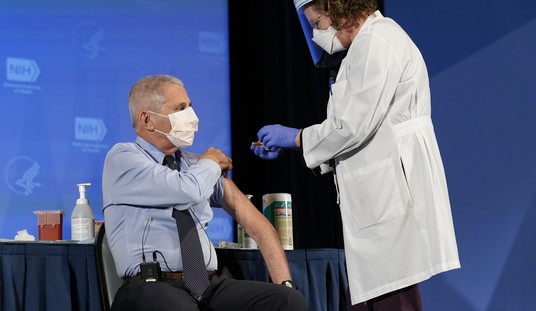The U.S. is losing the “war on drugs” in Afghanistan, with more than $7 billion invested in counternarcotics efforts since the fall of the Taliban yet poppy-growing at an all-time high.
The Special Inspector General for Afghanistan Reconstruction issued a report today detailing how the opium suppliers are flourishing thanks to better farm technology and more arable land, defying wipeouts from agricultural disease and interdiction programs to produce bumper crops.
Most of the prime poppy-growing areas have been in the southern half of Afghanistan, with pockets of high cultivation potential east of Kabul toward the Pakistan border. New cultivation regions have popped up in the northern part of the country near the borders with Tajikistan and Turkmenistan, and 200,000 hectares of desert in the southwestern part of the country has blossomed into arable land thanks to affordable irrigation from deep-water wells, SIGAR noted.
In 2013, Afghan farmers grew 209,000 hectares of opium poppies — a record high with the previous peak, 193,000 hectares, reached in 2007.
Funding for the $7.6 billion in U.S. efforts to wipe out poppy production came from the Department of Defense (DOD) Afghan Security Forces Fund, the State Department’s (State) International Narcotics Control and Law Enforcement fund, the DOD Drug Interdiction and Counter-Drug Activities fund, the Drug Enforcement Administration, and the U.S. Agency for International Development’s Economic Support Fund.
That money has been allocated to help the Afghan government develop its narcotics enforcement program, developing “alternative livelihoods” for Afghan farmers, “limited” drug-enforcement operations conducted jointly with U.S. and Afghan forces, and “financial incentives to Afghan authorities to enforce counter narcotics laws.”
The inspector general, John Sopko, relayed the findings last week to Secretary of State John Kerry, Defense Secretary Chuck Hagel, Attorney General Eric Holder and USAID Administrator Rajiv Shah.
“As you know, the narcotics trade poisons the Afghan financial sector and undermines the Afghan state’s legitimacy by stoking corruption, sustaining criminal networks, and providing significant financial support to the Taliban and other insurgent groups,” Sopko wrote. “…With deteriorating security in many parts of rural Afghanistan and low levels of eradication of poppy fields, further increases in cultivation are likely in 2014.”
“Due to relatively high opium prices and the rise of an inexpensive, skilled, and mobile labor force, much of this newly-arable land is dedicated to opium cultivation. Poppy-growing provinces that were once declared ‘poppy free’ have seen a resurgence in cultivation.”
Nangarhar province, Sopko noted, was heralded as a model for counternarcotics efforts and declared poppy-free by the United Nations Office on Drugs and Crime in 2008, yet saw a “fourfold” increase in cultivation between 2012 and 2013.
The value of Afghanistan’s crop shot up from $2 billion in 2012 to $3 billion in 2013.
“In past years, surges in opium poppy cultivation have been met by a coordinated response from the U.S. government and coalition partners, which has led to a temporary decline in levels of opium production. However, the recent record-high level of poppy cultivation calls into question the long-term effectiveness and sustainability of those prior efforts,” Sopko wrote.
“Given the severity of the opium problem and its potential to undermine U.S. objectives in Afghanistan, I strongly suggest that your departments consider the trends in opium cultivation and the effectiveness of past counternarcotics efforts when planning future initiatives.”
The agencies were given a chance to respond before SIGAR released the report. The Justice Department had nothing to say.
The U.S. Embassy in Kabul noted that “while cultivation is only one indicator of counternarcotics progress, it was disappointing news, as was the decline in poppy eradication by provincial authorities this year.”
More than 80 percent of the world’s “illicit” opium comes from Afghanistan, and the Embassy said the trade is “a windfall for the insurgency, which profits from the drug trade at almost every level.”
“We are making good progress in building the capacity of our Afghan partners to design, lead, manage, and sustain over the long term strategic and tactical counternarcotics efforts addressing all stages of the drug trade, including cultivation, production, trafficking, and use; to better protect vulnerable populations from the dangers of drugs; and to bring major traffickers to justice. These programs are works in progress but we are seeing results.”
The Embassy added “there is no silver bullet to eliminate drug cultivation or production in Afghanistan” but vowed the U.S. is “successfully building Afghan capacity to implement and lead counternarcotics efforts.”
The U.S. implemented an anti-poppy strategy in 2004 just before then-President Hamid Karzai declared jihad on opium.
The Pentagon acknowledged to SIGAR that “poppy production is on the increase and is a significant threat to U.S. and international efforts in Afghanistan.”
“In our opinion, the failure to reduce poppy cultivation and increase eradication is due to the lack of Afghan government support for the effort. Poverty, corruption, the terrorism nexus to the narcotics trade, and access to alternative livelihood opportunities that provide an equal or greater profit than poppy cultivation are all contributors to the Afghan drug problem.”
USAID notes that 75 percent of Afghans make a living off farming or depend on locally grown goods to eat. The agency has been trying to help open new markets for Afghan almonds, pomegranates, pistachios, raisins, and apricots.
“The battles fought in recent days in southern Helmand and some other provinces have been fought over drugs by major drug mafia in the shape of the Taliban or alongside the Taliban,” Acting Minister of Counter Narcotics Din Mohammad Mubarez Rashidi said today, according to Afghanistan’s Tolo News. “It is obvious that it is a drug war.”
Rashidi, a Karzai appointee, has said the “Taliban and al-Qaeda encourage farmers to cultivate and protect their crops.”









Join the conversation as a VIP Member